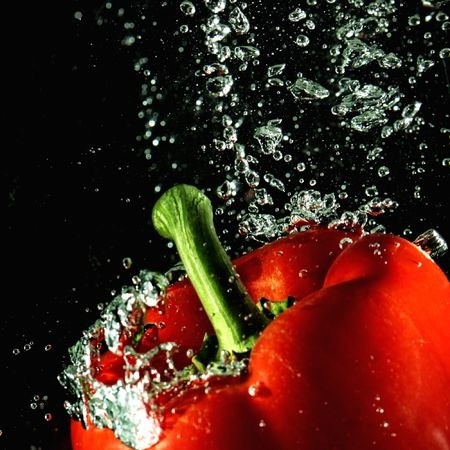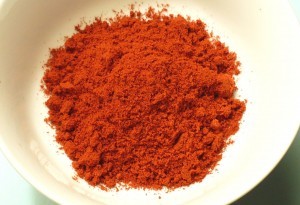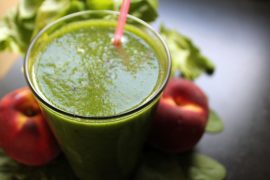You will be surprised to learn that red hot spicy paprika contains high levels of vitamin C, which is almost nine times more than tomatoes. It also contains many anti-oxidants and photochemical that is known to help the immune system in many ways. See below to learn ten of the benefits and don’t forget to watch the short video from Dr. Andrew Weir.
1. Anti-inflammatory Properties:
Paprika possesses great anti-inflammatory properties and is particularly beneficial for people suffering from autoimmune and inflammatory diseases. It is helpful in relieving swelling caused by arthritis as well as other aches and pains in the body.
2. Lowers Blood Pressure:
This quality can be attributed to the presence of capsaicin in paprika, though it is lower in comparison to other peppers. Capsaicin aids in lowering blood pressure by relaxing the blood vessels.
3. Provides Energy:
Paprika is an important source of vitamin B6, which is a coenzyme. In other words, it is vital to enable 100 other enzymes to perform their function perfectly. They initiate biochemical reactions in the body that create energy, providing glucose while producing neurotransmitters and haemoglobin. This spice also contains iron, which carries oxygen throughout the body and is a component of many proteins. These proteins are responsible for energy creation. Paprika is an awesome stimulant and energizer, which can be used to treat conditions like tiredness, lethargy, and depression.
4. Eye Health:
Vitamin A plays a crucial role in maintaining healthy eyesight and basically refers to a group of compounds called carotenoids. Paprika contains four carotenoids namely—beta cryptoxanthin, beta-carotene, lutein, and zea-xanthin. This vitamin is used by the eyes to turn light into vision. Lutein and zea-xanthin reduce the risk of developing age related macular degeneration and cataracts. It is advisable to combine paprika with a source of fats such as olive oil to fully reap the benefits of carotenoids.
5. Assists Digestion:
Paprika aids in digestion by normalizing acid in the stomach. It is a great stimulant, which facilitates digestion by boosting saliva and stomach acids. It can be used to treat indigestion. However, high doses of paprika may interact with other medications, so it is advisable to consult your physician before using paprika for this purpose.
6. Promotes Sound Sleep:
Vitamin B6 in paprika has powerful neurological and psychological effects. It contributes to the production of the ‘sleep hormone’ melatonin, helping you maintain a normal sleep cycle. Besides, it boosts your body’s serotonin and norepinephrine levels, both of which enable you to stay happy and stress free.
7. Antibacterial Properties:
An antibacterial protein found in paprika has been found to inhibit the growth of certain bacteria such asSalmonella and E.coli that are often transferred through ingestion. Inclusion of paprika in your diet can inhibit the growth of these harmful bacteria, if not completely stop it.
8. Prevents Anemia:
As stated earlier, paprika contains iron, which is involved in the formation of red blood cells. Besides, the abundant amount of vitamin C in this spice enables the body to absorb iron. In this way, inclusion of paprika in your diet can help prevent anemia.
9. Cardiovascular Benefits:
Vitamin C in paprika provides protection against cardiovascular disease, particularly heart attack and stroke. Vitamin E is an antioxidant that prevents damage by free radicals, reducing the risk of heart disease. Being loaded with minerals like iron, magnesium, potassium, and phosphorus, it helps to purify your blood and improve heart health.
10. Wound Healing:
Paprika is a good source of vitamin E, which helps in producing red blood cells. It also helps in forming clots in case of cuts and wounds, facilitating quick wound healing.
Source: stylecraze.com
NEXT: Short Video by Dr Andrew Weil – health benefits of paprika




